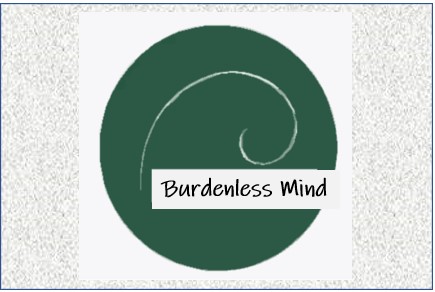A burdenless mind is a state of mental freedom, characterized by the ability to process thoughts and engage with the world without being weighed down by internal hindrances. This freedom allows for clarity, creativity, and a more authentic engagement with both professional and personal lives.
Freely thinking is the process of allowing thoughts to arise, be analyzed, deliberated upon, lead to conclusions, inform decisions, and inspire actions, all without the constraints of pre-existing biases, rigid rules, or external dogma. It’s a fluid and dynamic process where each thought is evaluated on its own merit, leading to genuine understanding and innovation.
This principle of freely thinking and striving for a burdenless mind finds application in various aspects of life:
- In our Profession: Approaching work with a burdenless mind allows for genuine service and innovation. Whether it involves guiding a learner without preconceived notions, creating tools that empower others, or fostering collaboration within a specific industry, a burdenless mind enables the identification of opportunities for contribution and the creative resolution of problems. It allows for objective assessment, the recognition of untapped potential, and addressing needs without being limited by rigid ideologies.
- In our Personal Life: A burdenless mind fosters healthier relationships and a greater sense of well-being. It allows for approaching interactions with openness, empathy, and without the weight of past experiences or expectations, leading to deeper connections and more fulfilling personal lives.
The development of a burdenless mind can be fostered through several key practices:
#1 Lack of Deceit:
A mind entangled in deceit carries the heavy burden of maintaining falsehoods, diverting mental energy from productive and meaningful endeavors. Honesty, both internally and externally, creates a lightness of being, freeing the mind to operate with integrity and focus on genuine purpose. Deceit erodes the sacredness of intent, leading to a sense of unfulfillment.
#2 No Religious Obsession
While belief systems can offer comfort and community, an obsession with rigid patterns can restrict free thinking. When the mind is conditioned to accept without question, it becomes less adept at independent inquiry and critical analysis. A burdenless mind engages with beliefs, whether religious or otherwise, with a spirit of open inquiry, allowing for personal understanding rather than blind adherence.
#3 The 10,000 hrs. rule
The dedication to mastering a skill, often associated with the 10,000-hour rule, cultivates a burdenless mind within that specific domain. As proficiency grows, the mental effort required for execution diminishes, leading to a state of flow and a profound sense of mastery. The deep understanding and intuitive grasp that accompany expertise liberate the mind from constant deliberate thought, fostering greater creativity and efficiency.
#4 Close to nature
Immersion in the natural world offers a respite from the mental noise of daily life. The tranquility and beauty of nature can soothe the mind, reduce stress, and foster a sense of calm. This mental space allows for clearer thinking and a release from the burdens of worry and anxiety.
#5 Sacredness
Identifying and honoring deeply held values provides a framework for one’s actions and decisions. This clarity reduces internal conflict and the burden of constant questioning. When core principles are well-defined – whether they pertain to family, professional integrity, or community connection – choices become more aligned and less mentally taxing. Communicating these sacred values to close relations fosters understanding and strengthens support systems, contributing to a less burdened existence.
#6 Response
Cultivating thoughtful responses, rather than reactive ones, is crucial for a burdenless mind. Impulsive reactions often lead to regret, strained relationships, and lingering mental unease. By consciously focusing on how we respond to situations and people, we can navigate life with greater emotional intelligence and reduce the burden of unnecessary conflict and negativity. A considered response reflects a mind that is present and in control, rather than driven by immediate impulses.
Most of us practice these principles, unconsciously and consciously, and can be brought into conscious awareness to intentionally.
Cultivate a burdenless mind, leading to more fulfilling and impactful lives in both professional and personal spheres.
And, ensure that your deeply held values are understood by those closest to you to further a foundation of mutual respect and support, fostering a less burdened existence.






